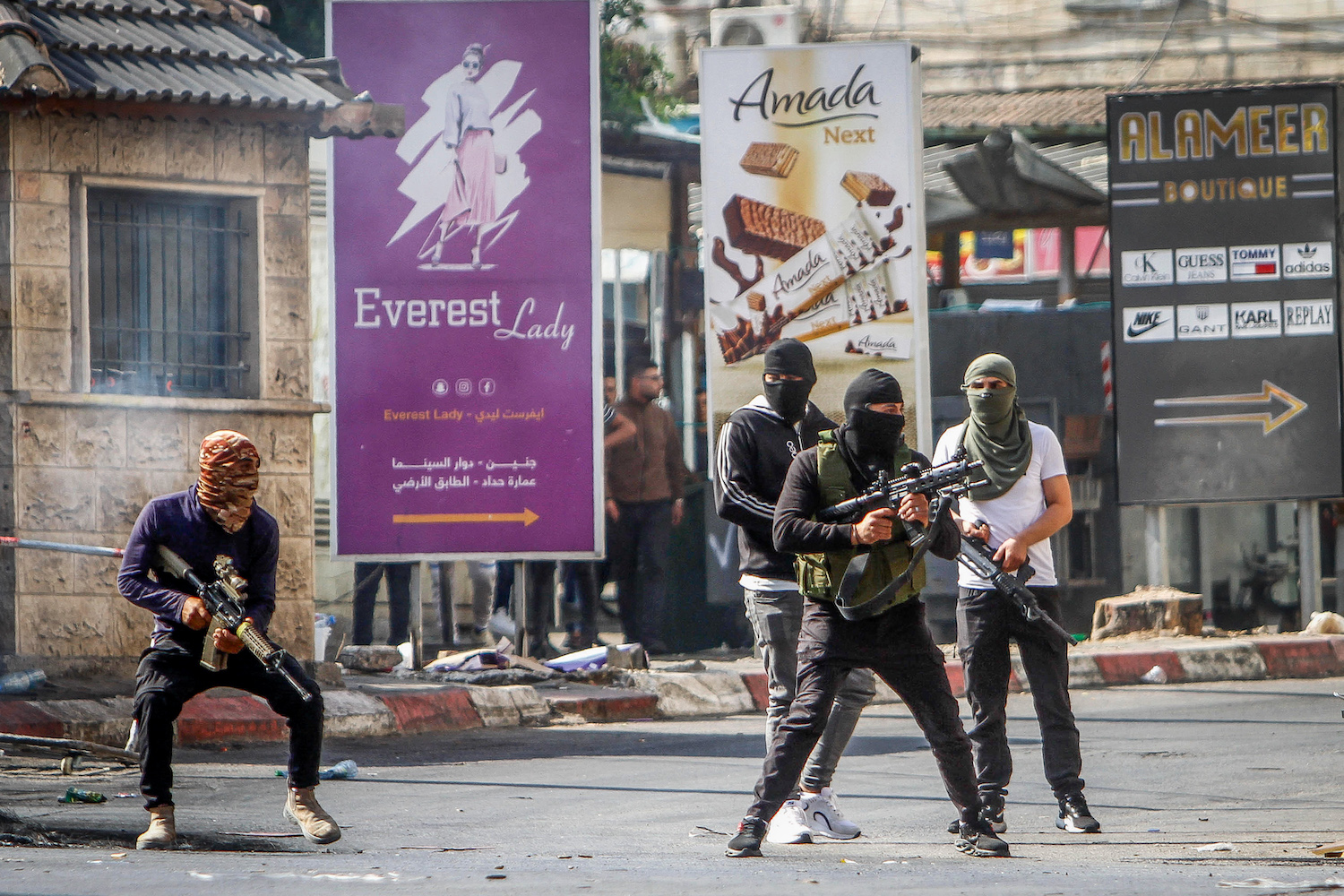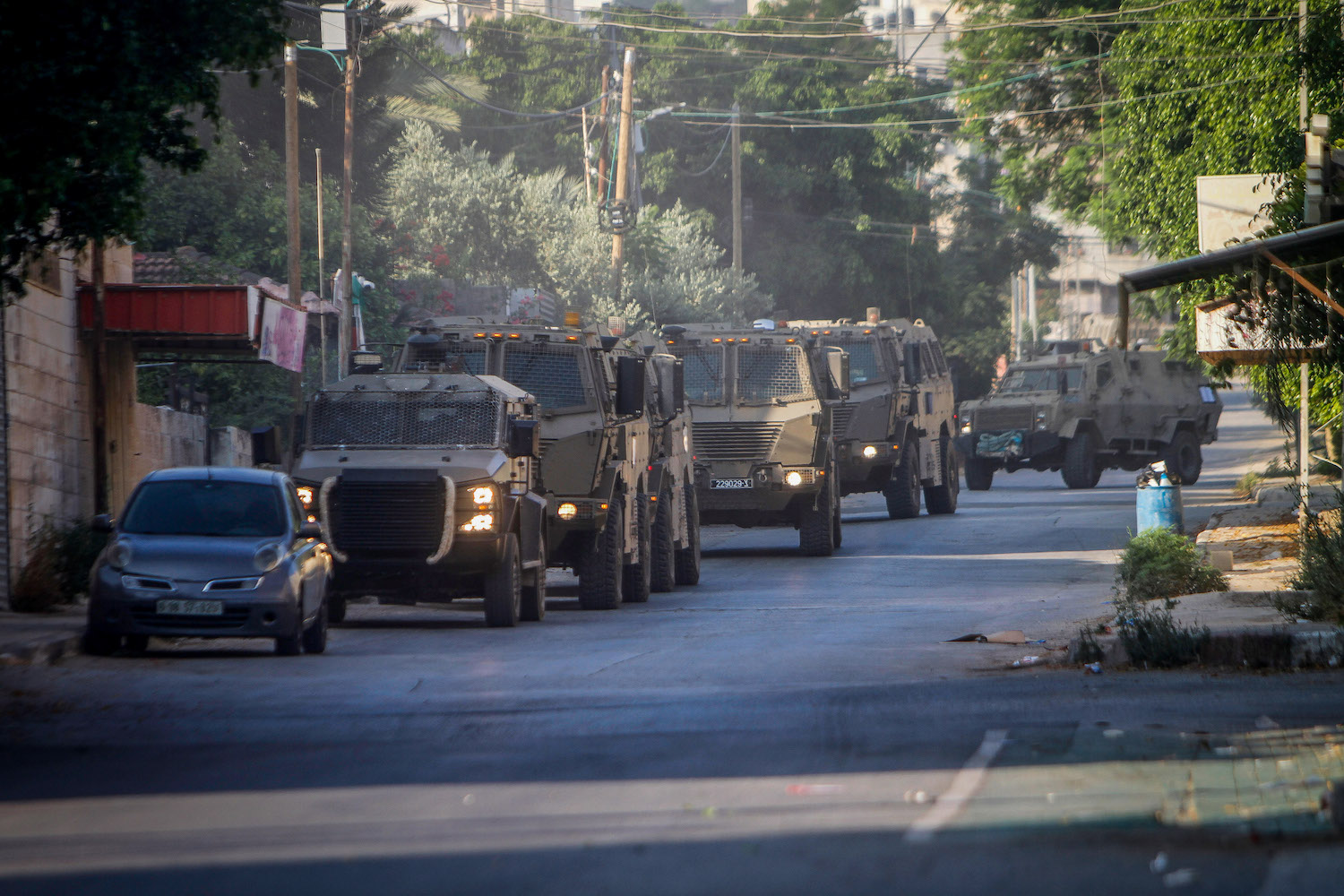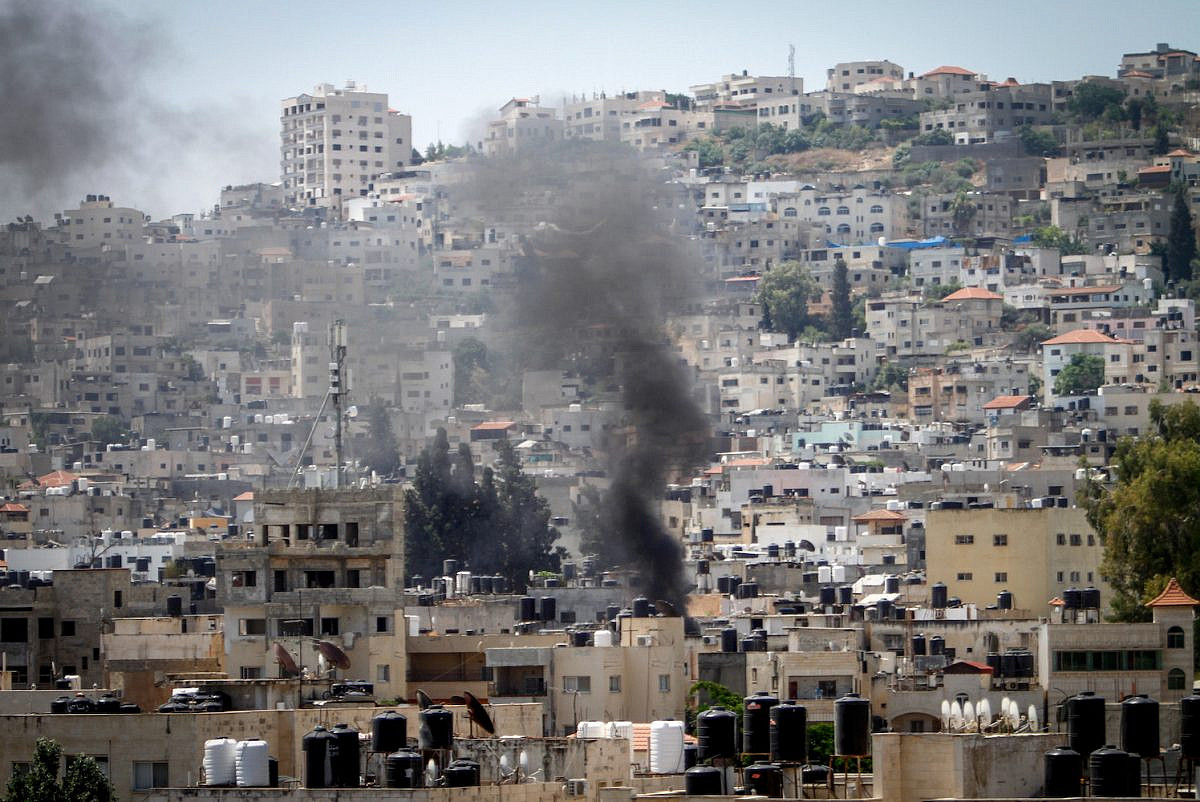“All entrances to the camp are closed. Bombs are exploding. Bullets are being fired in all directions. Cars and roads are being bulldozed. Communication has been cut and you cannot check in on people. It’s a dire humanitarian situation — we do not know who needs help and how urgently.”
These were the words of Ahmed Tobasi, the Artistic Director of the famous Freedom Theatre, speaking to me over the phone in the midst of an Israeli military offensive in Jenin refugee camp, home to around 11,000 Palestinians, in the occupied West Bank on Monday morning.
Late Sunday night, Israeli forces — armed with aircrafts and bulldozers — launched a major operation in the area, which is still ongoing at the time of writing. The IDF claimed that it is “striking terrorist infrastructure” in the area, and suggested that the operation may last several days. Eight Palestinians have been announced killed so far, while one Israeli soldier was reportedly lightly wounded in confrontations with Palestinian fighters inside the camp.
Images circulating on social media show roads and houses reduced to rubble, and Palestinian bodies strewn on the roadside inaccessible to medical personnel. With reports of further critical injuries among Palestinians, and Israeli forces continuing to operate throughout the camp into Monday afternoon, the number of casualties seems likely to rise in the hours ahead.
The invasion is the latest escalation in Israel’s assault against what it deems “centers of terrorism” in the West Bank, with the cities of Jenin and Nablus in particular bearing the brunt in recent months. Two weeks ago, the army launched two different air strikes from an Apache helicopter and a drone, in the first attacks of their kind in the West Bank since the height of the Second Intifada two decades ago; such aerial warfare, meanwhile, has been routinely used in the Gaza Strip since the Israeli-Egyptian blockade began in 2007.

Israel scaled up its use of air strikes in Jenin last night and this morning, before launching a ground invasion in which dozens of armored military vehicles blockaded the camp, trapping all Palestinians inside — civilians and fighters alike — while several hundreds if not thousands of Israeli soldiers operated throughout the area.
Speaking to Tobasi this morning, his cellphone line kept failing as he moved to take shelter in his house across the street from the theater — which was established in 1990 to teach Palestinian youth resistance through art and acting — has at the entrance of the camp. He had no internet, so a WhatsApp call wasn’t possible, and with access only to 3G, he recorded voice notes in which shooting and shelling can be heard constantly in the background.
“I’m at the main street in the Jenin refugee camp which leads from the western and eastern entrances,” he said over the sound of a barrage of bullets. “At 6:00 a.m., giant Israeli military bulldozers started to bulldoze the streets of the camp, especially the main street and entrance I live on.
“The sight of what is happening takes me back 20 years,” he continued, referring to the Israeli army’s invasion during “Operation Defensive Shield” amid the Second Intifada. “It’s the same atmosphere, the same danger, the same destruction. We have no electricity, no internet, they broke the water pipelines, they cut all the electrical cords, there are Israeli snipers everywhere. Soldiers are moving in groups right now from one house to another — the same strategy they used in 2002.”
That year, in what became known as the “Battle of Jenin,” the Israeli military employed tanks, helicopters, and infantry, causing widespread devastation and heavy civilian casualties. The camp’s narrow and densely populated alleyways posed a challenge for Israeli forces to navigate, and so they used bulldozers to destroy cars, buildings, and anything else standing in their way in order to create paths through which tanks could enter.

Many homes were demolished or damaged during that operation, and the army was found to have committed numerous violations of international humanitarian law. A UN investigation later concluded that 52 Palestinians were killed, including militants and civilians, while Israel reported 23 soldiers killed.
“I saw so far three unmanned aircrafts and lots of drones all over the skies of the camp,” Tobasi said. “There is lots of smoke and the sound of bombs coming from the direction of the theater. We honestly cannot even look out of the window to figure out what is happening outside. The situation is so dangerous that we do not really know the extent of the multiple explosions we keep hearing. Most of the firing is done by the army, in all directions.”
Although there have been frequent Israeli raids and incursions for months, Tobasi sensed that the current offensive was different. “This is not just the usual army operation that they often do in the camp,” he explained. “This looks like it is going to last longer, judging by the way they invaded the camp, and the preparations they have been doing inside the camp all night long.
Most read on +972
“For the first time in 20 years they fired Apache missiles at us,” he continued. “They already attacked three houses, and they informed the owners of the houses that either the young men who are wanted or pursued [Palestinian fighters] hand themselves in, or the army will demolish the houses. Many houses were searched and we do not know if the army planted bombs in them or not.
“Right now, even the ambulances cannot drive into the camp because the bulldozers have damaged the roads,” he went on. “As I speak to you, the army is firing smoke bombs and I can see flames — I cannot tell if they’re coming from cars parked in front of the theater or the theater itself. The whole world seems on fire.”
“The Israeli army bulldozed most cars parked in the streets,” added Tobasi, with nearby sniper fire heard clearly in the background. “Again, it feels like the 2002 invasion. With my eyes, I saw cars going up in flames and the fire reached houses, and none of us can leave home to help others or move around. [We are being fired at by] snipers and soldiers inside army vehicles. They are intentionally not allowing anyone to move around. They want to punish the whole camp as revenge.”





